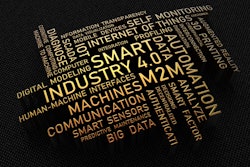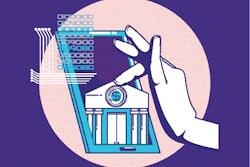
Regulatory mandates, stakeholder demands and social responsibility concerns are some of the hot-button issues causing manufacturers to take a hard look at environmental impact of their operations. Whether willingly or begrudgingly, many companies are actively seeking ways to reduce emissions and promote sustainable practices. Even the White House has taken measures to prioritize using American-made low-carbon construction products through the Federal Buy Clean Initiative.
Currently, manufacturing processes use nearly a quarter of all energy consumed in the United States and a full third of the energy globally. However, there is hope for positive change in the near future, and it doesn’t rely solely on the goodwill of manufacturers. From rising energy prices to a myriad of incentives and financial benefits, sustainability is good business.
Real Change Can Happen Through Today’s Technology
While many manufacturers are open to adopting more sustainable practices—especially if they save money, too--few know where to begin. Furthermore, there’s a lingering sense among mid-size manufacturers that sustainable manufacturing is something only for large manufacturers to worry about. It doesn’t help that many believe they must choose between profitability and social responsibility. Finally, some are simply afraid of change, living by the old saying, “if it’s not broken, don’t fix it.” The only problem is, the old way of doing things is broken, whether manufacturers realize it yet or not.
Upon closer inspection, the choice between sustainability and profit is a false dichotomy. There is a solution that is not only easy to implement, but it also brings with it a wealth of environmental and financial benefits – while at the same time increasing convenience: industry 4.0.
With its technological advances and smart automation, industry 4.0 is paving the way for increased levels of climate-friendly production and meaningful change. In other words, what many manufacturers think they can’t afford or don’t want to implement – digitization – is the very thing that can not only improve sustainability, it can also help their bottom lines and make their jobs a whole lot easier.
How Industry 4.0 Can Benefit Your (and Almost Any) Company
Sustainable manufacturing encompasses the activities of the entire company and industry 4.0 can unlock new efficiencies at every turn, offering energy conservation, decarbonization and sustainable, resilient operations. Converting a legacy factory into a smart and sustainable factory requires seamless integration from the shop floor to the top floor. Therefore, digitizing the supply chain, operations and product lifecycle is a key component in the sustainable manufacturing blueprint for success.
By integrating existing systems and machines, manufacturers gain greater visibility into their operations. This data allows them to track the evolution of raw materials into finished products, and by streamlining this process and reducing waste, manufacturers can mitigate some of their most challenging supply chain issues.
Industry 4.0 solutions provide rock-solid support for sustainable action in several impressive ways, including:
- Equipment Performance: Predictive maintenance reduces downtime and maximizes the useful life of equipment. This keeps equipment on the shop floor rather than in the landfill. Studies have shown that poor maintenance can reduce a manufacturing facility’s overall capability by 5% to 20%, and engineers are often able to detect and repair problems that might otherwise lead to waste and excessive carbon emissions.
- Scrap reduction: Statistical Process Control (SPC) works by continuously monitoring manufacturing processes and all key performance indicators (KPIs) relevant to product quality. With direct SPC integration, manufacturers can harness data to increase material efficiency and reduce scrap.
- IT/OT Convergence: With the seamless integration that industry 4.0 brings, IT and OT become more connected than ever. This convergence allows IT compliance systems to analyze plant floor data from OT systems in real time. Then, AI-powered IT systems can empower plant managers to make data-driven decisions about optimizing the efficiency of plant operations to reduce carbon emissions. For instance, if an aging machine begins to run less efficiently and starts to use more electricity than it should, plant managers can now receive this data in real time from anywhere in the world. In the past, as long as the line kept running, they would have been in the dark—and wasting money and energy in the meantime.
- Paperless Manufacturing: Millions of sheets of paper can be saved annually with the utilization of digital data management, electronic archiving, and improved work processes. And this saves more than trees. Paperless manufacturing saves time and improves accuracy, both of which lead to lower costs and better data.
Enhanced Sustainability = Financial, Environmental Gain
Not only can an Industry 4.0 implementation elevate a manufacturer to smart factory status, but it also should lead to environmental benefits essential for the future of manufacturing. Ensuring greater sustainability is not only imperative to the health of our planet but it also helps companies maintain a significantly healthier ROI through the use of digitization—not to mention it can also help attract environmentally conscious employees and investors.
Companies that take the initiative to create sustainable, low-carbon operating factories today will enjoy a tangible competitive advantage in the form of reduced costs, less waste, increased employee productivity and safety, and improved overall efficiency going forward.
Meanwhile, those who stick to the status quo will find themselves in a perilous position, being open to potential risk, penalties and criticism from regulators, company investors and even their own environmentally conscious customers, who today are on the lookout for sustainable goods more than ever before.




















